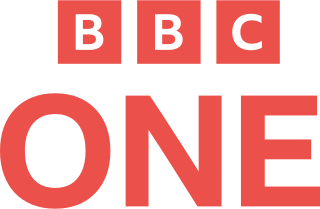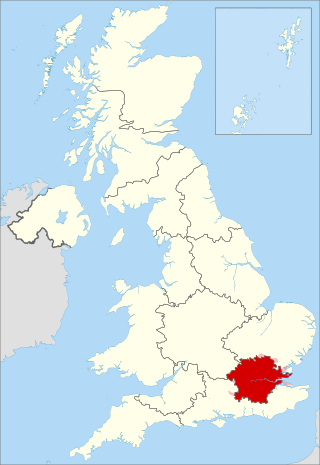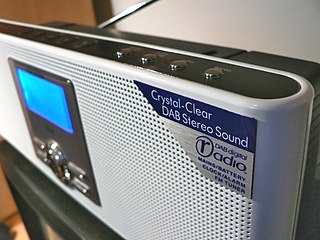Related Research Articles

Channel 4 is a British free-to-air public broadcast television network, which is independently operated by the state-owned Channel Four Television Corporation. It began its transmission on 2 November 1982 and was established to provide a fourth television service in the United Kingdom. At the time, the only other channels were the licence-funded BBC One and BBC Two, and a single commercial broadcasting network ITV. The network's headquarters are based in London and Leeds, with creative hubs in Glasgow and Bristol.
A television licence or broadcast receiving licence is a payment required in many countries for the reception of television broadcasts, or the possession of a television set where some broadcasts are funded in full or in part by the licence fee paid. The fee is sometimes also required to own a radio or receive radio broadcasts. A TV licence is therefore effectively a hypothecated tax for the purpose of funding public broadcasting, thus allowing public broadcasters to transmit television programmes without, or with only supplemental funding from radio and television advertisements. However, in some cases, the balance between public funding and advertisements is the opposite – the Polish broadcaster TVP receives more funds from advertisements than from its TV tax.

ITV is a British free-to-air public broadcast television network. It was launched in 1955 as Independent Television to provide competition to BBC Television. ITV is the oldest commercial network in the UK. Since the passing of the Broadcasting Act 1990, it has been legally known as Channel 3 to distinguish it from the other analogue channels at the time: BBC One, BBC Two, and Channel 4.
Regular television broadcasts in the United Kingdom started in 1936 as a public service which was free of advertising, which followed the first demonstration of a transmitted moving image in 1926. Currently, the United Kingdom has a collection of free-to-air, free-to-view and subscription services over a variety of distribution media, through which there are over 480 channels for consumers as well as on-demand content. There are six main channel owners who are responsible for most material viewed.

BBC One is a British free-to-air public broadcast television network owned and operated by the BBC. It is the corporation's flagship network and is known for broadcasting mainstream programming, which includes BBC News television bulletins, primetime drama and entertainment, and live BBC Sport events.

London Weekend Television (LWT) was the ITV network franchise holder for Greater London and the Home Counties at weekends, broadcasting from Fridays at 5.15 pm to Monday mornings at 6:00. From 1968 until 1992, when LWT's weekday counterpart was Thames Television, there was an on-screen handover to LWT on Friday nights. From 1993 to 2002, when LWT's weekday counterpart was Carlton Television, the transfer usually occurred invisibly during a commercial break, for Carlton and LWT shared studio and transmission facilities.
BBC Monitoring (BBCM) is a division of the British Broadcasting Corporation which monitors, and reports on, mass media worldwide using open-source intelligence. Based at New Broadcasting House, the BBC's headquarters in central London, it has overseas bureaux in Cairo, Delhi, Istanbul, Jerusalem, Kyiv, Miami, Nairobi, Ramallah, Tashkent and Tbilisi.
Alasdair David Gordon Milne was a British television producer and executive. He had a long career at the BBC, where he was eventually promoted to Director-General, and was described by The Independent as "one of the most original and talented programme-makers to emerge during television's formative years".
Teletext Ltd was the provider of teletext and digital interactive services for ITV, Channel 4 and Five in the United Kingdom.
There are several different types of mass media in the United Kingdom: television, radio, newspapers, magazines and websites. The United Kingdom is known for its large music industry, along with its new and upcoming artists. The country also has a large broadcasting, film, video games and book publishing industries.
The British Broadcasting Corporation (BBC) took its present form on 1 January 1927 when John Reith became its first Director-General. Reith stated that impartiality and objectivity were the essence of professionalism in broadcasting.
The Pilkington Committee was set up on 13 July 1960 under the chairmanship of British industrialist Sir Harry Pilkington to consider the future of broadcasting, cable and "the possibility of television for public showing". One of the Pilkington Report's main conclusions was that the British public did not want commercial radio broadcasting, and it offered criticism of the existing commercial television licensees.

In the British Islands, any household watching or recording television transmissions at the same time they are being broadcast is required by law to hold a television licence. This applies regardless of transmission method, including terrestrial, satellite, cable, or for BBC iPlayer internet streaming. The television licence is the instrument used to raise revenue to fund the BBC; it is considered to be a form of hypothecated taxation.
The BBC Trust was the governing body of the British Broadcasting Corporation (BBC) between 2007 and 2017. It was operationally independent of BBC management and external bodies, and its stated aim was to make decisions in the best interests of licence-fee payers. On 12 May 2016, it was announced in the House of Commons that, under the next royal charter, the regulatory functions of the BBC Trust were to be transferred to Ofcom.
A quiz channel is a television channel that focuses on phone-in quizzes. The quizzes usually focus on puzzles, such as filling in blanks, identifying subjects, or other forms of word puzzles. The channels make money by encouraging viewers to call a toll phone number for the chance to play.

In the United Kingdom, the roll-out of digital radio has been proceeding since engineering test transmissions were started by the BBC in 1990 followed by a public launch in September 1995. The UK currently has one of the world's biggest digital radio networks, with about 500 transmitters, three national DAB ensembles, one regional DAB ensemble, 48 local DAB ensembles and an increasing number of small-scale DAB ensembles broadcasting over 250 commercial and 34 BBC radio stations across the UK. In London there are already more than 100 different digital stations available. In addition to DAB and DAB+, radio stations are also broadcast on digital television platform as well as internet radio in the UK. Digital radio ensemble operators and stations need a broadcasting licence from the UK's media regulator Ofcom to broadcast.

In Ireland, a television licence is required for any address at which there is a television set. Since 2016, the annual licence fee is €160. Revenue is collected by An Post, the Irish postal service. The bulk of the fee is used to fund Raidió Teilifís Éireann (RTÉ), the state broadcaster. The licence must be paid for any premises that has any equipment that can potentially decode TV signals, even those that are not RTÉ's. The licence is free to anyone over the age of 70, some over 66, some Social Welfare recipients, and the blind. The fee for the licences of such beneficiaries is paid for by the state. The current governing legislation is the Broadcasting Act 2009, in particular Part 9 "Television Licence" and Chapter 5 "Allocation of Public Funding to RTÉ and TG4". Devices which stream television via internet do not need licences, nor do small portable devices such as mobile phones.

Television in Wales began in 1952. Initially, all programmes were in English with occasional Welsh language programmes. In 1982 Welsh language channel S4C was launched. The digital switchover happened in 2009-2010 and S4C became an exclusively Welsh language channel.
The British Broadcasting Corporation (BBC) is the national broadcaster of the United Kingdom, based at Broadcasting House in London. It is the world's oldest national broadcaster, and the largest broadcaster in the world by number of employees, employing over 22,000 staff in total, of whom approximately 19,000 are in public-sector broadcasting.
In the 1960s and 1970s, an envisioned fourth UK television service was popularly referred to as ITV2, before the launch of Channel 4 in November 1982.
References
- ↑ "Committees of Enquiry" (PDF). Archived from the original (PDF) on 14 January 2009.
- ↑ "British media inquiries, White Papers and official reports: Broadcasting". Archived from the original on 7 May 2004.
- ↑ "Peacock Committee Immediate Recommendations". The Political Quarterly. 58: 21–23. January 1987. doi:10.1111/j.1467-923X.1987.tb02571.x.
{{cite journal}}: CS1 maint: url-status (link)